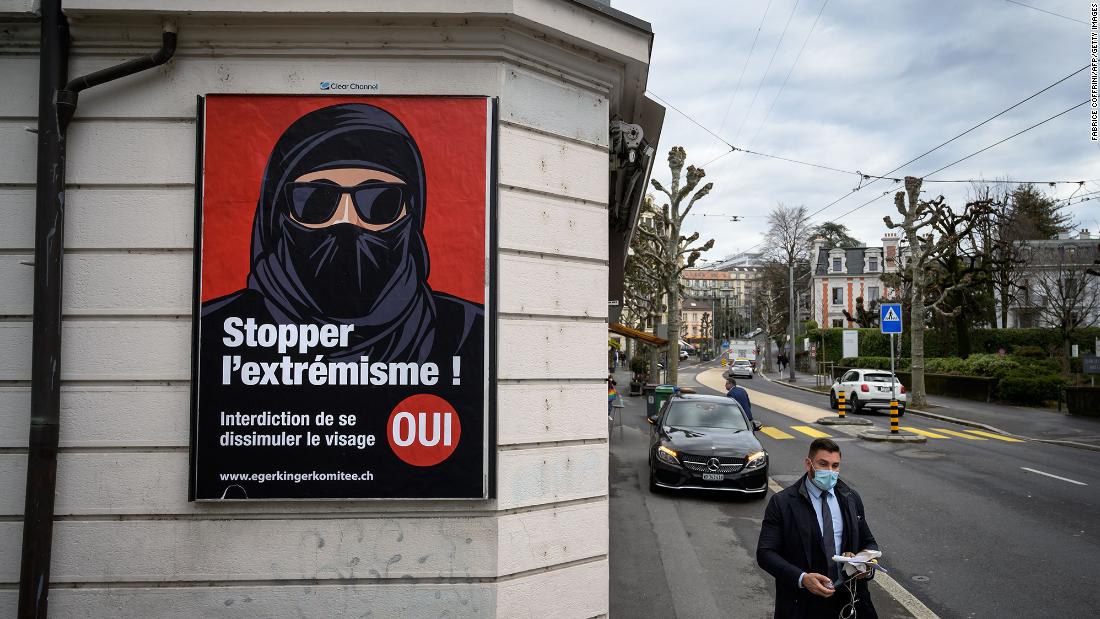The result means that face-covering will be banned in all publicly accessible places, including on the street, in public offices, on public transport, in restaurants, shops and in the countryside.
The only exceptions include places of worship and other holy places. Facial veils will also be allowed if worn for health and safety reasons, due to the weather and in situations where it is considered a ‘local custom’, such as at carnivals, according to the text of the proposal published by the Swiss. federal government.
There will be no additional exceptions, for example for tourists, reads the government document.
The proposal, put forward by several groups, including the right-wing Swiss People’s Party, does not specifically mention Islam, but is widely referred to in the Swiss media as the “burka ban”.
It has been criticized by a number of Swiss religious organizations and human rights and civil society groups, as well as the federal government. The Swiss Council of Religions, which represents all major religious communities in Switzerland, condemned the proposal earlier this year and stressed that the human right to religious freedom also protects religious practices such as dress.
The Swiss Federal Council, which serves as the federal government of the country, and the Swiss parliament also reject the initiative as too far-fetched and advise people to vote against it, according to government documents. The two bodies filed a counter-proposal to the ban, requiring people to remove any face mask and show their faces to police or other officials if necessary for identification.
The referendum on Sunday was the culmination of several years of debates on the issue and comes 12 years after another referendum banned the construction of minarets in the country. Two Swiss cantons – St Gallen and Ticino – have in the past introduced a ban on full face coverage, according to the federal government’s website. In several other cantons, face covering is currently banned only during protest marches.
The result of the vote was criticized by Amnesty International as ‘anti-Muslim’. “Swiss voters have once again endorsed an initiative that discriminates against one religious community in particular, unnecessarily inciting division and fear,” the group said in a statement on Sunday.
CNN’s Arnaud Siad reported.
